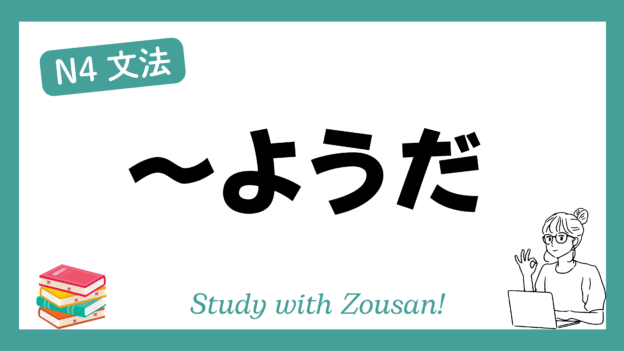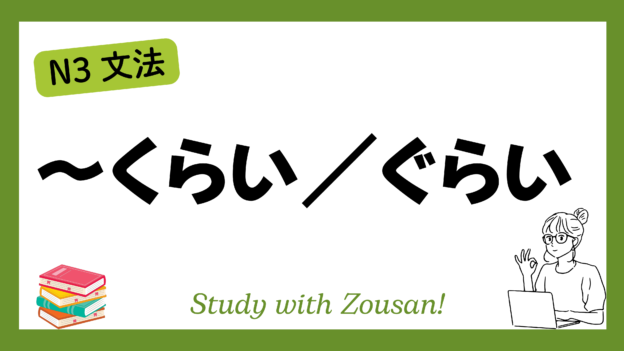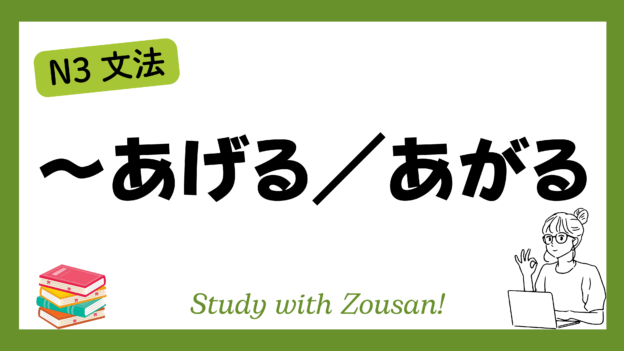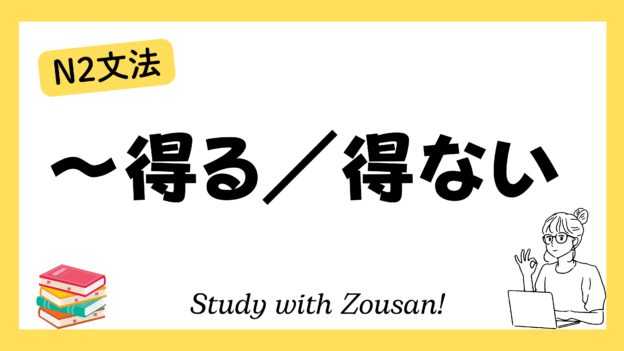N4文法:~ようだ
Meaning: “It seems that…” / “It appears that…” / “It looks like…”
~ようだ is used to express the speaker’s inference or guess based on available information, such as observations, things heard, or perceptions. It indicates that something is likely to happen as the speaker assumes.
※Note:
・~ようだ is often used in situations where the speaker is not completely sure about the matter but makes a guess based on the available information.
・This structure is more objective than ~みたいだ, which is commonly used in everyday conversations.
・~ようだ can also be combined with nouns, adjectives, and verbs to indicate similarity or comparison.
Structure:
| Verb (casual) | + ようだ |
| Noun + の | |
| な-adjective + な | |
| い-adjective |
Example:
-
-
-
🌟 彼は疲れているようだ。
(かれ は つかれて いる よう だ)
He seems to be tired. -
🌟 この映画は面白いようだ。
(この えいが は おもしろい よう だ)
This movie seems interesting. -
🌟 彼女は忙しいようです。
(かのじょ は いそがしい よう です)
She appears to be busy. -
🌟 彼はまだ寝ているようだ。
(かれ は まだ ねている よう だ)
He seems to still be sleeping. -
🌟 この店は閉まっているようです。
(この みせ は しまっている よう です)
It appears that this shop is closed. -
🌟 彼の話は本当のようだ。
(かれ の はなし は ほんとう の よう だ)
His story seems to be true. -
🌟 雨が降りそうなようだ。
(あめ が ふり そうな よう だ)
It looks like it might rain. -
🌟 彼は新しい仕事に満足しているようだ。
(かれ は あたらしい しごと に まんぞく している よう だ)
He seems satisfied with his new job. -
🌟 彼女は何かを隠しているようだ。
(かのじょ は なにか を かくしている よう だ)
She seems to be hiding something. -
🌟 彼は来ないようだ。
(かれ は こない よう だ)
It seems that he’s not coming.
-
-









